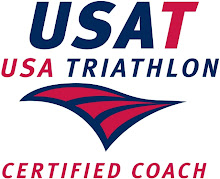By Rhielle
A lot of runners that I talk to tell me that when they get done with a long or hard workout, they feel depleted and just want to sit on the couch and watch TV or sleep all day. Other people talk about how it is so hard to find energy to complete the training set out on the training schedule for the week following an especially long run. There are a few reasons for this struggle. Most of it comes from a lack of nutrients during and after the exercise.
During the run, your body needs to intake four key elements: water, carbohydrates, electrolytes, and protein. The duration and intensity of the run will dictate the amount of each of these three things you need to take. We talked last week about taking electrolytes and including them in your running diet so I won't go over that again.
Water is one of the most important elements. If you get dehydrated, you put your body at risk of huge core temperature swings causing problems that range from hypothermia to heat stroke. In order to determine how much water one must take, each runner must determine his/her own sweat rate. The best way to do this is to weigh yourself before and after a workout. You will have to weight yourself undressed though on both occasions so your sweat on the clothes doesn't mess up the second reading. The difference in weight is the amount of water you should have been drinking for optimum performance. So for every pound you lose, that requires 16 oz of water to replace it. Once you lose 2% of your body weight in water (2.4 lbs for a 120 person), your performance will suffer and it will take much longer to recover. Drinking water is something that you must train with. The body can adapt to running with stuff in your tummy as long as you practice it before hand. If you don't, you risk throwing up, dehydration, and poor performance.
Carbohydrates are that thing that people think of as the highest form of evil. However, if you don't have any carbohydrate to burn, the percentage of fat you burn during your run will be reduced. (Isn't burning fat one of the goals in all of this?!) The reason for that is that unlike fat, carbohydrate is a rich energy form that doesn't take a lot of energy to access and burn. So your body will use carbs in conjunction with fat, for energy during the run. The liver and muscles stores about 2 hours worth of carbs so once you run out of that your body will use the next easiest thing to burn, protein. To prevent burning protein(and losing muscle) during a run, you must supply your body with enough quick access carbohydrates. Most people ingest about 50-75 grams grams of carbs every hour following the first hour. That means one gel every 20-30 minutes. Taking gels also helps you drink water because you need something to wash that stickiness out of the mouth. Not to mention that you have to drink water with it so it can be digested without making you sick.
Finally, protein, the number one culprit of the post workout drag. As mentioned above, you must ingest carbs to prevent burning protein. You can also ingest protein, but you typically only want to do this in events lasting more than 2.5-3 hours. All you triathletes, marathoners, century riders, this stuff is for you! I know that eating a hamburger while exercising doesn't sound too appealing so thanks to nutrition companies, like hammer nutrition and first endurance, there are other ways. Usually, you drink it in powder-mixed-with-water format. Protein is also the essential element to post-workout recovery. The explanation for why is a bit long so bear with me.
Exercise is catabolic. That means it breaks tissues down. When you exercise, you break the muscles down and they come back stronger the next time, right? Almost. Your muscles come back stronger only if you have given them the building blocks to do that. Muscles are made out of protein which is why it is essential to take protein after a long run. Also, absorbtion rate of protein will rapidly decrease just 30 min. after you finish exercise. So make sure that you are getting your recovery drink, smoothie, or other source of protein down the gullet within one half-hour after your workout is over. For those of you who are exercising for more than 2.5-3 hours, start taking the protein during exercise with the other three elements: water, electrolytes, and carbs. I recommend Hammer's Perpetuem, it works well for almost everyone that I talk to.
Subscribe to:
Post Comments (Atom)









2 comments:
Thanks for starting up this blog! Who is it that is giving us this info? Is it Debbie Perry? I'm beginning the 20 week training for the SL marathon in just a couple of weeks and will enjoy this blog to keep me motivated!
I really enjoy this blog! Keep the great advice coming! I also am grateful for your advice about the importance of carbohydrates in an ever growing environment of where people feel they need to cut them completely out to accomplish their goals. It's about being strong and good complex carbs will do this. Thanks again!
Post a Comment